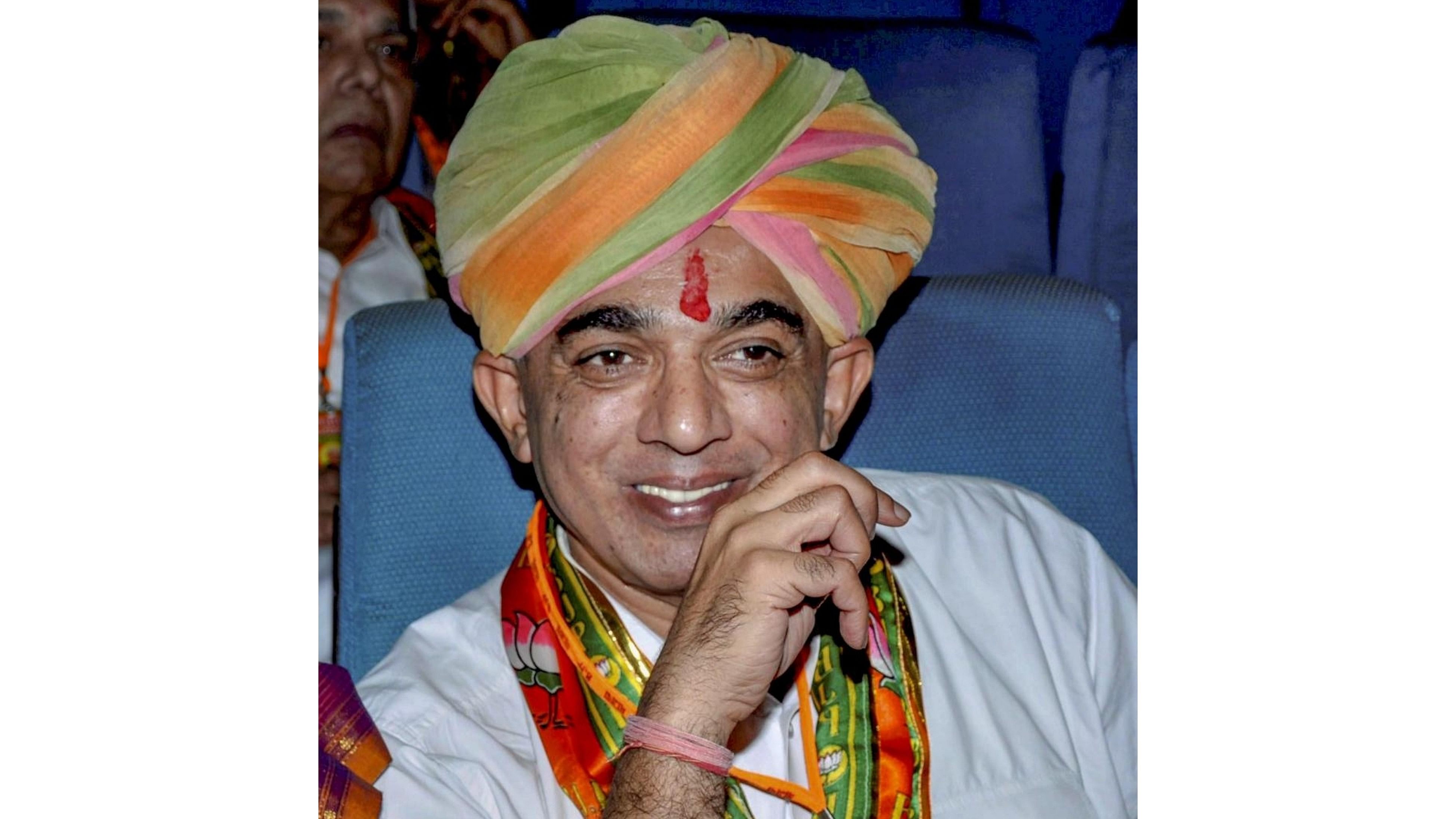
File picture of Manvendra Singh.
Credit: PTI Photo
Other than being the son of senior BJP leader Jaswant Singh, Manvendra Singh, 59, the Congress candidate from Siwana constituency this Assembly elections, is a man of words.
A former journalist with expertise in defence and national security affairs, he still indulges in his passion-writing on topical issues from time to time. Politics, however, runs in his blood, so he took the plunge in the 90s. He first became a MP from Barmer-Jaisalmer in 2004 and was considered a young, educated and upcoming leader.
Later he became an MLA from Sheo constituency in 2013. He exited BJP when his father, former defence minister, was denied a ticket for the Lok Sabha from Barmer by chief minister Vasundhara Raje in 2014. Jaswant Singh decided to fight independently. He, however, lost. That was when Manvendra decided enough was enough and joined the Congress in 2018. He says Congress has given him respect.
Rakhee Roytalukdar quizzes him about his current political leanings.
Siwana is a rural constituency, what are its main issues?
Water availability and lack of irrigation facilities are the main issues here. Too many tube wells have been dug in the region and groundwater level has gone much below the permissible limit. It is an issue which needs serious and immediate action.
Siwana has been won by the BJP in the last three elections, how do you hope to counter them?
BJP is definitely strong here. But Congress too has a well-built base here too. Moreover I have personally networked amongst the people of the region. I hail from this region, know the ins and outs of this desert stretch, and have a strong connection with the people. I hope to cash on, on my personal connections.
Do you think Congress’s welfare schemes would cut ice with the electorate? Have they been implemented on the ground, especially in Barmer?
There has been remarkable success in implementation because of the Inflation Relief Camps that were held in May. Despite the complexities, the schemes and their implementation have been fairly successful. Lakhs have got relief, especially the subsidised cylinders and the other guarantee cards. Some may have missed out if their documentation was incomplete.
You have been part of both the BJP and Congress; how different do you find the two parties?
Congress is, of course, the Grand Old Party, having more than 100 years in them. They have an elaborate bureaucratic system; they have various checks and balances. So, the decisions are often transparent. Decisions may not always be right, and they are open to challenge. Congress has given me respect, which is a basic necessity.
In BJP, the decisions are much faster and efficient. Most times come from the top. Again, the decisions may not always be right.
You have written extensively on Manipur, what is your view on how the Central government handled it? Is it going to be a concern for voters this Assembly elections, considering Barmer is as remote as Manipur in terms of distance from Delhi?
Government simply did not handle Manipur; they abdicated all responsibility towards the state. A civil war is on in the state. There is violence and it is still unrelenting. Social separation and political separation are growing. It is as if the state government is not functioning at all and is in a stupor. Manipur should have an effect on the Mizoram elections, but the rest is unlikely.
But it is really strange how this country works; people are not bothered here even if it is a national security issue. There have been Chinese incursions, but these are not talked about. And these issues should be of concern to us (common man) on a daily basis and not just election issues.